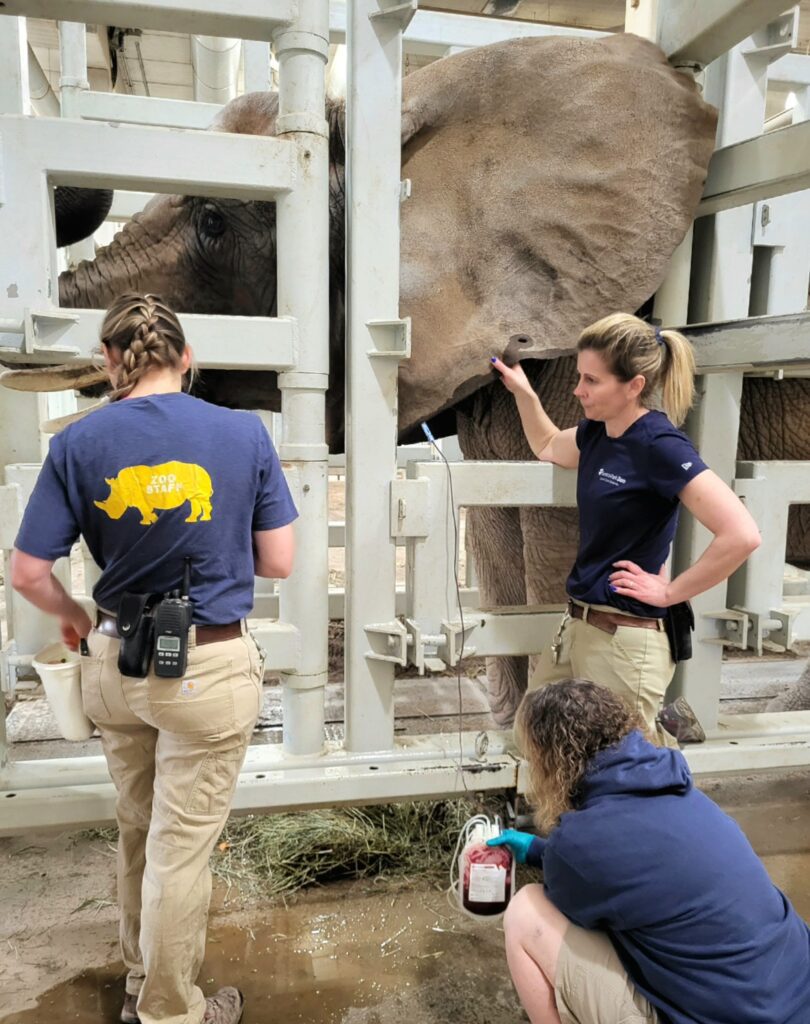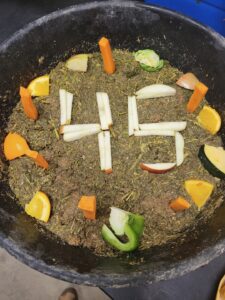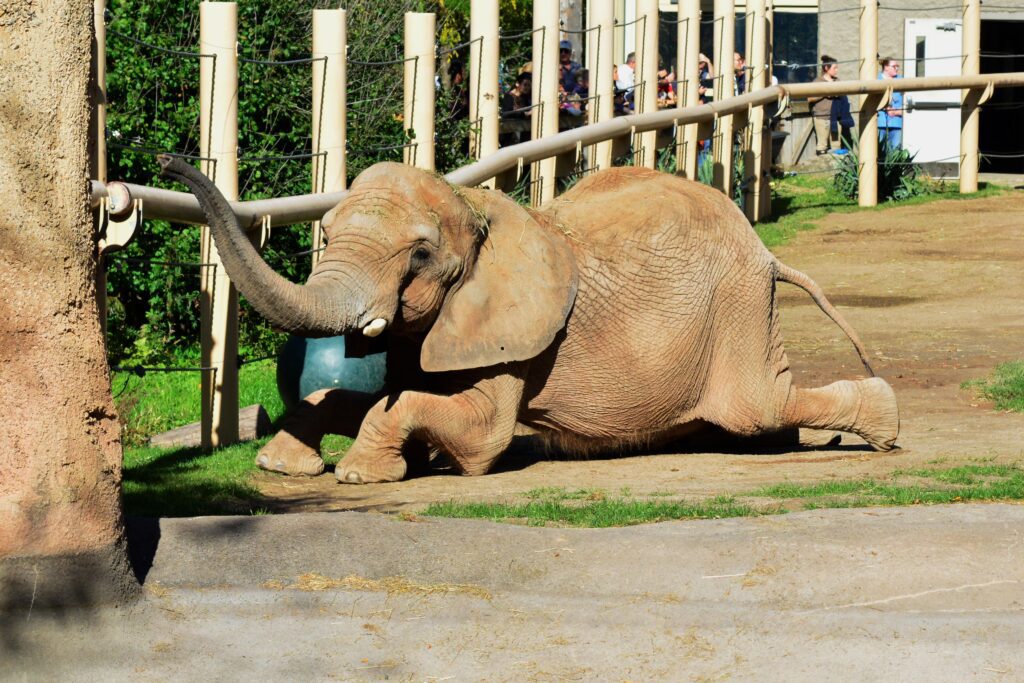May 1, 2023
This year, African elephant Lilac turns 45 years old. At this age, female African elephants are considered geriatric. She is in the middle of Seneca Park Zoo’s other elephants, Genny C (45) and Moki (40). Lilac participates in daily training sessions and daily bath sessions—plus she’s always eager to test out new enrichment items. Lilac has a lively personality!
Over her lifetime, Lilac has learned and maintained more than 50 different behaviors. Many of these behaviors allow Lilac to voluntarily participate in her own health care, such as presenting her feet for radiographs, allowing keepers to file her toenails, and opening her mouth for inspection of her teeth. Every time she chooses to participate, she gets tasty treats for reinforcement! All three of our elephants, including Lilac, are trained to participate in voluntary blood draws, where keepers are able to draw blood from behind the ear. These have always given us valuable information about the elephants’ health, but this year, Lilac’s blood is contributing to a global cause.
Elephant endotheliotropic herpesvirus (EEHV) is a naturally occurring virus in elephants, both in their natural range and in zoos. EEHV usually remains latent, but when EEHV becomes active, it can cause hemorrhagic disease in susceptible elephants. Many elephants are able to fight the virus on their own, but calves are the most susceptible to EEHV after they have been weaned, since they are not being protected by their mother’s antibodies.
There is currently no known cure, but knowledge from ongoing research has evolved and improved the treatment of EEHV. Currently, elephants can potentially recover if diagnosed and treated early. Our elephants here at Seneca Park Zoo are at low risk due to their age, but our Zoo is still able to contribute to the cause. Seneca Park Zoo collects elephant plasma to contribute to an “elephant blood bank” that is maintained by an alliance of zoos housing elephants that are able to collect plasma. There is currently no known cure for EEHV, but donated plasma can be used for research or to treat this virus in other elephants. This year, Lilac became a first-time plasma donor, and she did a great job!
She was patient with her keepers and veterinary staff, and she appeared to enjoy all the attention and variety of food treats. Because Lilac has a strong foundation with her voluntary medical behaviors, she is able to help other elephants around the world.
– Zoo Keeper Morgan Saidian












